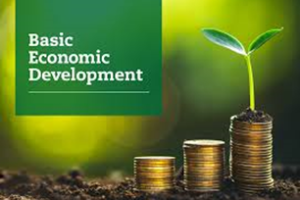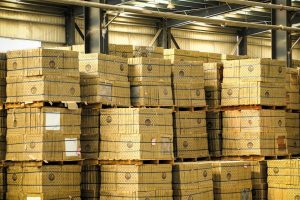
BY DANIEL ALEMAYEHU
Ensuring the ongoing prosperity via achieving the set objectives makes mandatory for every concerned entity of the nation to craft possible and feasible strategies and act accordingly. Doing so, continuous progress and development will be attained. To this end, viable opportunities should be opened for stakeholders so that they play their role in building the nation’s economy. The government and the private sectors indeed contribute their respective better parts as the goal is common for both parties.
The process of making the nation productive and putting it in a pipeline of prosperity should be led on the right track before anything else. In this regard, every sector that is found in the country should play its part. Particularly, the agriculture sector should play a vital role along with responsible stakeholders to give due attention to support the development of the nation. It is an easy logic that when a nation answers the queries of food security, changes in other sectors become inevitable.
Ethiopia has been working on promoting its agricultural systems and strategies to achieve its major economic objectives. The nation has been practicing Agriculture led Industrialization policy in order to meet its goals. On this particular point, the nation’s agriculture sector has been going in line with the policy and doing great in achieving its goals.
In his interview with The Ethiopian Press Agency (EPA) recently, Melaku Alebel Minister of Industry, noted that in relation to the nation’s 10-year development plan, the government is working on promoting and building the capacity of every sector without giving special attention to a particular sector. All the sectors should work together and play their part in the process of making the country prosperous.
Lately, Prime Minister Abiy Ahmed (PhD) has given a response to the queries raised by members of House of People’s Representatives. On the occasion, the Premier pinpointed three major sectors namely industry, agriculture, and service sectors have contributed the highest percentage to the nation’s growth. From the total registered figure, agriculture has taken a 6.9 percent share.
Likewise, in an interview with The Ethiopian Press Agency, Minister of Agriculture, Umer Hussien also mentioned the progress and achievements concerning the agriculture sector. The Minister stressed that in the past production year, the nation achieved 90 percent of its goals. The sector has implemented various strategies and plans to hit its target.
“Our irrigation based wheat production paid its price. At this moment, we substitute the imported wheat worth one billion USD with our own products. This year, we plan to maximize our production by cultivating one million hectares of land to produce 25 million quintals. As per our plan, we need around 75 thousand water pumps, and we have secured more than 62 thousand. However, fertilizer demand is still a major challenge,” he said.
The Minister further said that the ministry has been facilitating the action taken by investors and promoting its best experiences to the rest of the regions including the initiative ‘Yelemat Terufat’. Moreover, he said the ministry facilitates contract farming where investors agree with farmers to get a product they need.
Umer mentioned that the government’s committed leadership and the community’s readiness should be considered when it comes to agriculture. Accordingly, the incumbent supports the sector to get a tax-free import of agricultural equipment, a 15 billion Birr subsidiary, irrigation, and the green legacy. This made it possible to achieve progress. It was also reported that the agriculture sector encountered major challenges though it has scored better achievement.
With all the issues raised above, the agriculture sector should be supported and incentivized with multiple means. In order to promote the sustainable development of the country, stakeholders should work on financing the agriculture sector coupled with creating awareness of insurance.
Days ago, there was an event that was organized under the theme: ‘Policy Forum on Green Legacy Initiative and, Agricultural Finance and Insurance in Ethiopia’ by The Ethiopian Economics Association (EEA). Speaking at the event, the Association’s CEO, Prof. Mengistu Ketema said the association has been working to be part of the solution to the major agriculture and micro-finance constraints of the nation. So as to give response to those challenges, the association is focusing on conducting research in order to help the nation to ensure the projected sustainable development.
Similarly, the CEO noted that organizing such a forum has vital importance regarding singling out the constraints observed in the sector. There is a potential to curb those constraints by conducting practical research and organizing discussion sessions on various issues to add extra value to the nation’s economic development.
Mengistu also disclosed that the finance and insurance sectors have not been adequately supporting the agriculture sector. Even though it is currently providing microfinance and insurance, a lot of things remain to be done in the future. To increase the agriculture finance and insurance service, Mengistu stated that serious measures have to be taken to raise societal awareness, financial sector linkage, improve policy, maintain ease of doing business, encourage the private sector, and construct infrastructure.
On the occasion, Assistance Prof. Hailu Elias from Addis Ababa University also presented a paper entitled: “Agricultural Finance and Insurance in Ethiopia Challenges and Policy Option.” In his presentation, Hailu underscored that the financial sector has been playing a significant role in creating jobs for rural and urban citizens, fostering business activities, and increasing saving thereby improving the livelihoods of the society and the like.
He added that though the finance and private sectors have been playing an indispensable role in reinvigorating the development of the country, a long journey is left ahead to be marched for various reasons.
Among others; inadequate physical infrastructure, lack of inputs, market linkage and land provision, sub standard of financial service, lack of skilled human power, shortage of foreign exchange, and the like are the main serious factors hindering the active participation of the private sector in the journey to prosperity. Finance accessibility in Ethiopian economic development over the past many years remained being serious bottleneck, Hailu added. The Minister of Agriculture previously mentioned the above ideas that the government has been working tirelessly to overcome those hurdles.
Abebe Damtie (PhD), a Researcher also presented his research paper titled: “Green Legacy Initiative for Sustainable Economic Development in Ethiopia.” In his presentation, the researcher highlighted that forests have been contributing a lot to the progress of the Ethiopian economy.
As to him, forests have contributed 2.3 to the Ethiopian GDP in 2015 which increased to 8.3 percent in 2020. According to The United Nations Environment Programme (UNEP) 2016 report, the forest has contributed 13 percent to the Ethiopian economy. On the contrary, researches show that Ethiopia has lost an average of 92,000 hectares of forest per year over the past two decades that necessitates intensification of the green legacy.
To conclude the ideas mentioned above, every step that the nation takes must be supported by pragmatic research outcomes. The agriculture sector has the potential to prosper even better than the previous times if the right stakeholders take their part to play. The country still has untapped resources that both the government and private sectors can act upon.
The Ethiopian Herald December 9/2022





